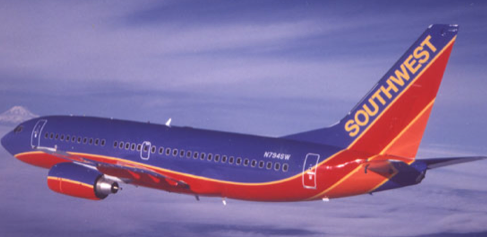
The answers to why Memphis has some of the highest airfares in the country came as no surprise to many assembled in the audience at a Greater Memphis Chamber of Commerce-sponsored air service public forum this morning at Christian Brothers University.
That’s because the overwhelming responses — high jet fuel prices and a lack of competition — given by the airline industry executives who sat on the six-person panel were the same answers that have been given time and time again since the citizen demand for lower airfares picked up steam a few months ago.
According to Commercial Appeal editor and panel moderator Chris Peck, the panel was intended to help people understand why they pay what they do for tickets. But at the panel’s end, lower airfare advocate Cheri DelBrocco stood up and told the panel that people are looking for answers as to how the powers-that-be plan to lower those fares.
“That’s what we came for,” said a clearly frustrated DelBrocco, who had earlier called the panel a “dog and pony show” on the Delta Does Memphis Facebook page.
Throughout the event, moderator Peck read written questions to the panel from note cards collected from the audience. Airline Weekly managing partner Seth Kaplan was asked why fares here are so high.
His response? “I cannot overstate the impact of how high fuel prices in the airline industry has forced airlines to raise fares.”
When asked why Little Rock, which tends to have lower fares than Memphis, hasn’t been as affected by those high fuel prices, Kaplan said the lack of a low-cost competitor to Delta Airlines, which has a hub here, is what hurts Memphis airfares. He also said a few expensive non-stop flights in Memphis drive up the average cost of fares here.
“The average fare is $100 more here than in Little Rock, but Memphis has some non-stop flight options that Little Rock doesn’t have. That brings up the average fare prices here,” Kaplan said.
Kaplan said low-cost competitors are more likely to come to an airport that’s making money. In Memphis, Delta has actually cut back flights. Memphis Airport Authority president Larry Cox said Delta has cut back flights from 235 per day to 150.
But Cox said Delta’s shrinking service along with a new incentive package the airport can begin offering carriers on July 1st may actually help lure low-cost carrier Southwest Airlines. In the past, Cox said Southwest had turned Memphis down because both the old Northwest Airlines hub and the Delta hub were too big to compete against.
“This is the right time and the right incentive to make a difference,” Cox said.
Memphis Convention & Visitor’s Bureau president Kevin Kane revealed that he and Cox have been trying to lure Southwest to Memphis for 20 years. He said there were some legal reasons before as to why Southwest couldn’t locate here, but those were no longer an issue.
“When Southwest does ramp up, Delta will do whatever they can to be competitive,” Kane said.
Southwest Airlines is expected to locate to Memphis in the next 12 months, but Kaplan said Memphians may be surprised to see that it might not make as much difference in fare prices as they’d like to see.
“Southwest will be here with their own planes at some point. That will be helpful, but don’t think that will change the world and fares will tumble,” Kaplan said.
Chip Barclay, president of the American Association of Airport Executives, agreed.
“Southwest will not solve all your problems. They primarily serve the high-volume markets,” Barclay said, alluding to the fact that airline carriers in Memphis are actually cutting back service. He did, however, say that Memphis still has a robust level of service compared with other cities its size.
As for the economic impact of Memphis’ high fares, Kane said the convention business hasn’t slowed since fares have risen. He said 2012 has been a record year for conventions in Memphis and that a lack of large hotels presents more of a problem than high airfare. John Moore, president of the Greater Memphis Chamber of Commerce, said the higher fares were affecting small businesses much more than large corporations, such as FedEx, which often cut deals with airlines to fly their employees.